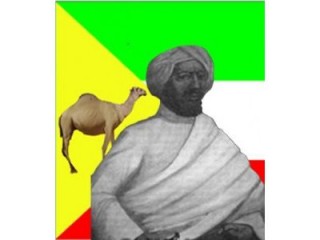
Muhammad Abdulle Hassan biography
Date of birth : 1864-04-07
Date of death : 1920-12-21
Birthplace : Somaliland
Nationality : Somali
Category : Historian personalities
Last modified : 2011-12-07
Credited as : political leader, poet, sheikh
Muhammad Abdulle Hassan was a politico-religious leader and poet who is considered the father of Somali nationalism for his inspiration and leadership in a 20-year war against European and Ethiopian imperialism in Somaliland.
Muhammad Abdulle Hassan was born on April 7, 1864, in northern Somaliland, and by age 12 he had decided to dedicate his life to the religion of Islam. His subsequent travels throughout Arabia and East Africa in search of knowledge, his reputation for learning, and his abilities as a teacher soon earned him the honorary title of sheikh. While in Mecca he met leaders of certain Moslem revivalist movements, and when he returned to Somalia in 1897, he began to condemn all excessive indulgences and luxuries and exhorted his people to return to a strict path of Moslem devotion.
During that era of the European partition of Africa, Sheikh Muhammad's contact with Catholic missionaries and British colonial officials convinced him that Christian colonization sought to destroy the Islamic faith of the Somalis. He believed that his passion to deepen Somali faith would never be realized until they were free, so he intensified his efforts by urging his countrymen to remove the European "infidels."
Sheikh Muhammad was clearly a man of great energy and broad imagination. In his attempt to create a national movement, he used kinship ties as bases for political alliances and deftly utilized marriage ties to cement alliances with clans with whom his relations were poor. To ensure a continued broad-based appeal, he was assisted in decision making by a small group of lieutenants who belonged to no single clan.
Sheikh Muhammad's success as a mediator in disputes between clans and tribes over water and grazing rights— main concerns for the pastoral Somalis—and his remarkable abilities as a poet further enhanced his fame, so that by 1899 he had attracted 3, 000 followers, whom he called "dervishes." His subsequent raids on British outposts and threats to Italian and Ethiopian holdings in the area led to the dispatch of four expeditions between 1901 and 1904, all of which failed to kill the sheikh or inflict serious damage on his followers. The disgruntled British officials denounced him as a madman and an outlaw and dubbed him the "Mad Mullah."
Unable to defeat Sheikh Muhammad's nomadic guerrillas, the Europeans accused him of alleged violations of Islamic law in an attempt to undercut his power, a maneuver that failed owing to a lack of evidence and the sheikh's obvious magnetism. Financial stringency finally led the British to evacuate the interior of their protectorate from 1910 to 1912. Many Somalis unsympathetic to the sheikh's movement were then subjected to reprisals, and Somaliland lapsed into a state of unparalleled confusion and chaos.
The British returned to the Somaliland interior in 1912, but the military commitments of World War I allowed for little more than defensive operations in their small Somali colony. In January 1920, however, the British government organized a carefully combined air, sea, and land attack on the dervishes. Planes bombed Taleh, a semipermanent, fortified center the sheikh had built for his dervish theocracy, and he was forced to abandon it to reorganize. With haughty disdain he rejected a British offer of free pardon upon surrender. Further attacks forced his dwindling forces into eastern Ethiopia, where he eventually succumbed to an attack of influenza and died on Dec. 21, 1920.
A national figure who appealed to the Somalis as Moslems regardless of their clan and lineage allegiance, Sheik Muhammad had as a formidable weapon of propaganda his scathing poems. As a poet, he relied on the traditional Somali art of alliterative poetry, which is used as a means to preserve the past and as an effective vehicle for communicating political ideas. He contributed to his charisma by assigning to certain dervishes the sole task of memorizing his poetry. In the innumerable poetic polemics his style alternated from violent denunciation and vituperation to soft words of conciliation, but the content always revealed a shrewd appreciation of the colonial situation in Somaliland. His poetry is still sung in Somali oral form, to the enrichment of the Somali poetic heritage.
















